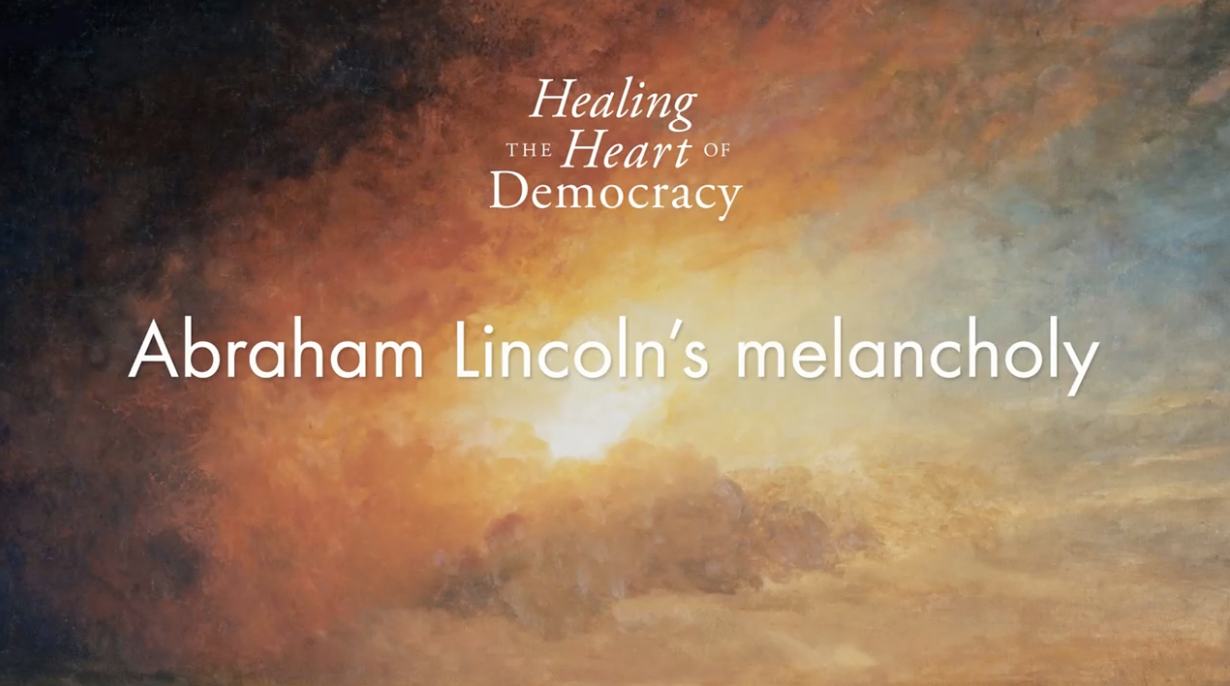From the Healing the Heart of Democracy Discussion Guide // What does Lincoln’s melancholy—and the way he dealt with it by embracing both the darkness and the light—have to teach us about how we hold heartbreaking experiences? About the heart or the human spirit? Do you believe that deeply interior personal qualities such as those Parker writes about can and do play out in the public or political arena?

This video is a part of the Healing the Heart of Democracy Discussion Guide and can be found with more videos and resources in our “Healing the Heart of Democracy Hub.” You can explore the hub, download the guide, and find all of the videos along with additional resources here.
———
In his second inaugural address, delivered on March 4, 1865, a month before the end of the Civil War, Lincoln appealed for “malice toward none” and “charity for all,” animated by what one writer calls an “awe-inspiring sense of love for all” who bore the brunt of the battle. In his appeal to a deeply divided America, Lincoln points to an essential fact of our life together: if we are to survive and thrive, we must hold its divisions and contradictions with compassion, lest we lose our democracy. Lincoln has much to teach us about embracing political tension in a way that opens our hearts to each other, no matter how deep our differences. That way begins “in here” as we work on reconciling whatever divides us from ourselves—and then moves out with healing power into a world of many divides, drawing light out of darkness, community out of chaos, and life out of death. (4)
Q. What does Lincoln’s melancholy—and the way he dealt with it by embracing both the darkness and the light—have to teach us about how we hold heartbreaking experiences? About the heart or the human spirit? Do you believe that deeply interior personal qualities such as those Parker writes about can and do play out in the public or political arena?
We offer an abundance of resources to help you learn more about our approach and explore the ways in which our work has meaningfully impacted people’s lives.
There was a problem reporting this post.
Please confirm you want to block this member.
You will no longer be able to:
Please note: This action will also remove this member from your connections and send a report to the site admin. Please allow a few minutes for this process to complete.
